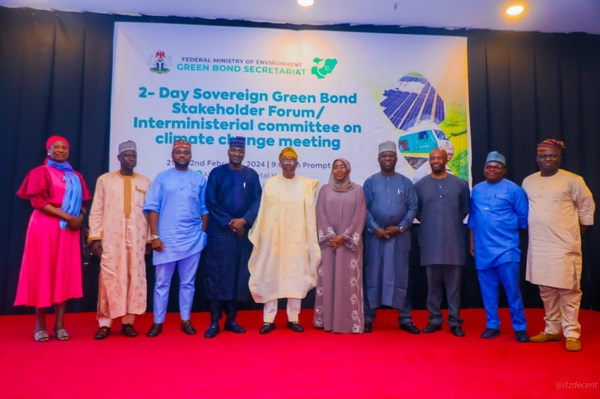
The Minister of State for Environment, Dr. Iziaq Salako has touted climate change as not just an environmental concern but a developmental issue with far-reaching economic and social consequences.
Speaking at the meeting of the Inter-Ministerial Committee on Climate Change Meeting/Green Bond Programme in Abuja, Salako underscored the need to recognise the broader impact of climate change on national development.
Salako highlighted the economic, social and ecological challenges facing Nigeria, emphasising the integral role of the Green Bond issuance in the country’s climate action. He urged stakeholders to collaborate effectively and emphasised the importance of stakeholders aligning their actions with the development of the green bond budget.
“The Green Bond issuance has become part of our climate experience. It is in this regard that we shall continue to draw strength and lessons from one another as we proceed in the nation’s low-carbon pathway through the Green Bond process,” Salako stated.
While discussing the potential third issuance of the Green Bond, Salako stressed the significance of efficiency in resource allocation and utilisation for priority projects, particularly for Sovereign Green Bond Issuance. He acknowledged the crucial role played by major stakeholders such as the Debt Management Office, Budget Office of the Federation and the Office of the Accountant General of the Federation in the success of the programme.
Appreciating the collaboration and financial support received, Salako singled out the World Bank through its ACReSAL project for its significant role in advancing the Green Bond programme. He urged continued active participation from relevant stakeholders to achieve the objectives set during the meeting.
In his welcome remarks, the permanent secretary of the Federal Ministry of Environment, Mahmud Kambari provided insights into the impact of previous Green Bond issuances. He noted that the projects funded by the Sovereign Green Bond, totaling NGN25.69bn, spanned five priority sectors: environment, energy, agriculture, transport and water.
Kambari highlighted the quantifiable environmental benefits achieved through these projects, including 12.5W of renewable energy generation, over 2,000 hectares of afforestation/reforestation programmes and an estimated annual emission reduction potential of 33,504 tonnes of carbon dioxide equivalent.
The permanent secretary expressed gratitude to the World Bank through the ACReSAL Project for its significant role and financial support to the Green Bond programme. He urged all relevant stakeholders to actively participate in ensuring the success of the meeting’s objectives.
Recalling Nigeria’s pioneering role as the first country in Africa and the fourth globally to issue a Sovereign Green Bond, the ministry’s statement emphasised the country’s commitment to environmentally sustainable practices certified using the Climate Bonds Standard.


